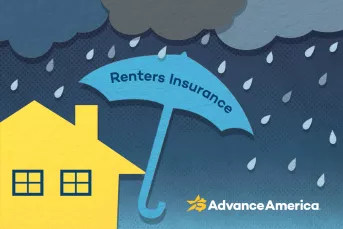
How Much of Every Paycheck Should You Save?
Ask 10 financial experts, “What percentage of my paycheck should I save?” and you’ll likely get 10 different answers. However, many financial experts and budgeting methods suggest putting aside 10% to 30% of each paycheck to savings.
The popular 50/30/20 budgeting method, for instance, recommends spending 50% of your paycheck on essentials and 30% on non-essentials. The remaining 20% goes to savings.
Ultimately, how much you can save from every paycheck depends on your household income, fixed expenses, and financial goals. The key is finding what works for you.
Benefits of saving money from your paycheck
Building your savings has many benefits. In addition to reaching those financial goals faster, you'll be better able to track your income for tax purposes. You'll also have funds on hand for major purchases and be financially prepared for emergencies.
How to save money from your paycheck
So, how can you get into the habit of saving money from each paycheck?
1. Evaluate your expenses
Before anything else, calculate your current expenses. You should have a clear picture of your fixed expenses to see if there’s room to cut costs. The more non-essentials you can eliminate, the more you can contribute to savings.
2. Create a budget
There are many budgeting methods out there, but they all boil down to knowing your take-home income, keeping track of monthly expenses, and adjusting the numbers if those expenses add up to more than your income. No matter which budgeting method you choose, the portion of your paycheck that goes to savings should be an essential part of your budget.
3. Automate your savings
Setting up an automatic transfer from your checking account to savings ensures you’re building that fund every month. Check with your current bank or credit union to see if they offer this option. Many allow you to establish automatic transfers at specified intervals, such as every two weeks.
4. Eliminate debt
Saving money is difficult when you have debts to pay. Depending on how much you owe, you may need to pay down your outstanding balances before freeing up money to put toward savings.
5. Earn additional income
If you’ve created a budget, cut expenses, and paid down debt — and you’re still left struggling to make ends meet — you may need to consider additional sources of income. For example, getting a second job, a side gig, or building passive income can make it easier to build your savings.
What to use the savings from your paycheck for
There are many reasons to contribute a portion of your paycheck to savings.
Building an emergency fund
An emergency fund helps eliminate the burden of unexpected medical bills, car repairs, home maintenance, job loss, and other unforeseen scenarios. Therefore, you should strive to set aside three to six months’ worth of expenses set aside in your emergency fund.
Paying off debt
Building your savings account can help you achieve a specific financial goal, such as getting out of debt. Plus, having a lump sum on hand can give you room to negotiate past-due bills.
Planning for retirement
Thanks to automatic deposits and employer-matched contributions, setting aside a portion of your paycheck for retirement is easy. Even so, it’s important to regularly assess how much of your income you contribute to your retirement account and adjust the percentage as needed.
Putting a down payment on a house
Buying a house has long been considered the American dream. But with rising home prices and interest rates, saving a 20% down payment takes a lot of budgeting and discipline. The earlier you start to save, the better.
Saving for your children’s education
Most parents would love to pay for their child’s college education. Developing a solid savings habit while your kids are still young improves your chances of covering their educational expenses down the road.
Where to put the savings from your paycheck
Savings account. Having a dedicated savings account can help you avoid the temptation to spend your hard-earned savings from your paycheck. A regular savings account works, but it’s often too easy to transfer funds to your checking account for impulse purchases.
High-yield savings account. A high-yield savings account is a better option because it accrues interest at a higher rate, helping you reach your goals faster. In addition, many high-yield savings accounts are offered online, so they’re not tied to physical bank locations. That makes it less likely that you’ll withdraw the money before reaching your savings goal, but you can still withdraw the funds anytime you need.
Certificate of Deposit. Another savvy option is a certificate of deposit (CD). Certificates of deposit are low-risk investments that offer maturity bonuses. In other words, when you open a CD, you lock away the funds for a certain period until the CD matures. At this point, you can withdraw the funds along with the accrued interest. The great thing about CDs is that it eliminates the temptation of withdrawing your savings early.
Money Market Account. A lesser-known type of savings account is a money market account (MMA). MMAs accumulate interest based on current money market rates. Banks typically require you to maintain a higher minimum balance in an MMA. Purchases and transfers are also limited, which can help you reach that savings goal.
What to do if you need money before your next paycheck
Saving money takes time and effort. If you haven’t built up your savings account and need extra cash before your next paycheck, we can help! Advance America offers a variety of cash advance loan options to meet your needs, including Payday Loans, personal Lines of Credit, and Title Loans. We can get you the funds you need to get started on the right track toward saving for a brighter tomorrow.
Notice: Information provided in this article is for informational purposes only. Consult your attorney or financial advisor about your financial circumstances.


